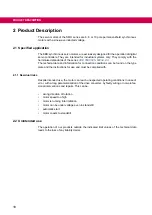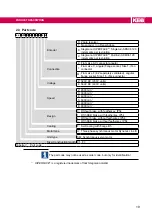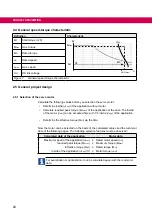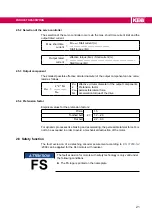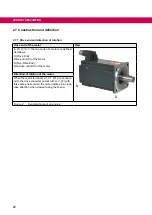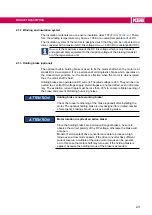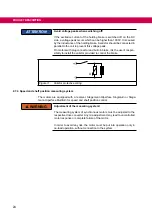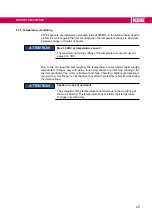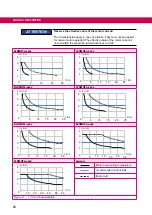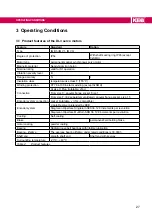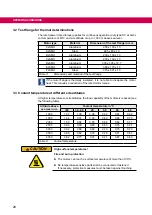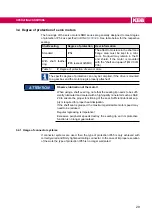
14
baSIc SaFETy INSTRUcTIONS
To prevent damage to the motor:
•
Check if necessary and do not remove anti-corrosive coat at the shaft ends, flange
surfaces etc.
• No vibrations may occur in the storage location.
• In case of storage longer than 3 months, rotate the motor in both directions at a slow
speed (< 100 rpm) to allow the grease to distribute evenly in the bearings.
• If necessary, rotate the rotor at least once a year several times, in order to avoid
corrosion on the bearings.
1.3 Installation
DaNGER
Do not operate in an explosive environment!
EX
►
The motors are not intended for the use in potentially explosive
environment.
caUTION
Maximum design edges and high weight!
contusions and bruises!
►
Never stand under suspended loads.
►
Wear safety shoes.
►
Secure motor accordingly when using lifting gear.
To prevent damages to the motor:
• Make sure that isolation distances will be respested in the terminal box.
• Before commissioning motors with a shaft key, secure the key to ensure that it can-
not be thrown out if this is not already prevented by driving elements such as a belt
pulley, coupling, etc.
• The motor must not be put into operation in case of mechanical defects. Non-
compliance with the applicable standards.
• Do not allow moisture or mist to penetrate the motor.
• Avoid dust permeating the device.
• Note installation position and minimum distances to surrounding elements. Do not
cover the ventilation openings.
• Make sure that no small parts fall into the motor during assembly and wiring (drilling
chips, screws etc.). This also applies to mechanical components, which can lose
small parts during operation.
•
Check for reliable fit of device connections in order to minimize conact resistance
and avoid sparking.
• Do not climb on the motor housing.
• The safety instructions are to be kept!
Summary of Contents for DYNAMIC LINE III
Page 2: ......
Page 12: ...12 Standards forasynchronousand synchronous motors ...
Page 58: ...58 NOTES ...


















